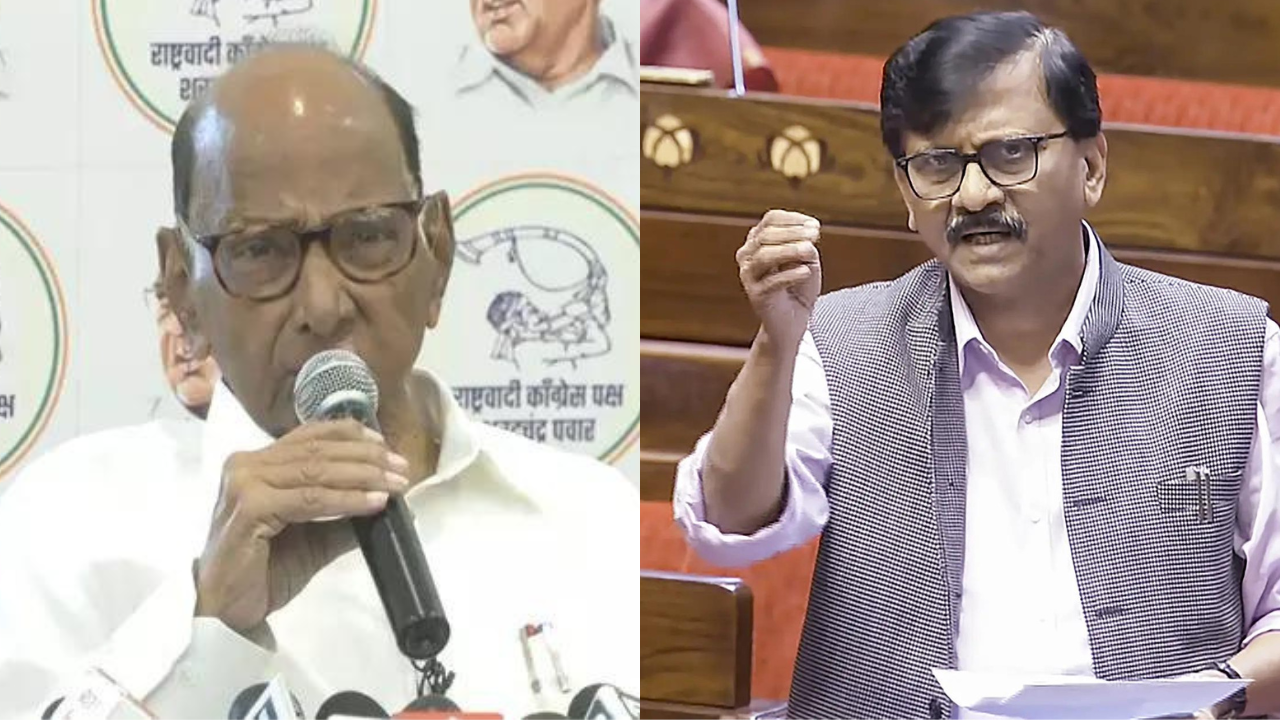Introduction
NCP (SP) president Sharad Pawar on Monday virtually snubbed Shiv Sena (UBT) leader Sanjay Raut, advising him against bringing “local level politics” into India’s global outreach efforts. This comes a day after Mr. Raut called for boycotting the Union government’s move to send all-party delegations to various countries. The delegations aim to represent India’s position on critical issues like the Operation Sindoor, a recent counter-terrorism strike against terror camps across the border.
Sharad Pawar’s Response to Sanjay Raut

Addressing the media in Baramati, Sharad Pawar recalled his experience as part of a delegation sent by former Prime Minister P. V. Narasimha Rao to the UN under the leadership of BJP leader Atal Bihari Vajpayee. He emphasized the importance of putting aside party politics on international issues, saying, “When the international issues crop up, the party-level politics should be shunned.”
He further stated, “Today, the Centre has formed some delegations, and they have been assigned to go to some countries and put forth India’s stand about the Pahalgam attack and the subsequent activities from Pakistan.” Learn more about the Operation Sindoor and India’s response.
While Mr. Raut has the right to his opinion, Pawar noted that a member from the Shiv Sena (UBT) was part of the delegation, reinforcing his point that local politics should not interfere with India’s diplomatic efforts.
Background on the INDIA Bloc and Delegations
The INDIA bloc, comprising several opposition parties including the Nationalist Congress Party (NCP), Congress, and Shiv Sena (UBT), has seen varied reactions to the government’s diplomatic strategies. Mr. Raut had suggested the bloc should boycott the all-party delegations, claiming they would defend the “sins and crimes” of the government. Read more about the INDIA bloc and its political significance.
In total, 51 political leaders, parliamentarians, and former ministers from various parties are participating in seven delegations traveling to world capitals to communicate India’s firm stance against terrorism post-Operation Sindoor.
Purandar Airport Opposition and Resolution Efforts

On a related note, Mr. Pawar addressed opposition to the proposed Purandar Airport, where some farmers have refused to give up their land due to concerns about compensation, displacement, and environmental damage. Pawar pledged to convene a meeting of local representatives, including Lok Sabha MP Supriya Sule and the Maharashtra chief minister, to resolve the issues.
More details on the ongoing Purandar Airport Development Project reveal the challenges faced, including violent clashes during drone surveys in early May.
Conclusion
Sharad Pawar’s remarks highlight the necessity of unity in representing India’s interests abroad, urging political leaders to refrain from letting local politics undermine global diplomatic efforts. As India continues to respond firmly to terrorism and develop critical infrastructure, collaboration across party lines remains crucial.
For more insights on India’s political dynamics and international relations, explore our latest articles on Indian politics.